A network that brings together alumni interested in Gender Equality, Disability, and Social Inclusion (GEDSI) issues has rolled out its strategy for the year ahead, with a focus on knowledge exchange and discussions on important topics for advocacy.
The Australian GEDSI Alumni Network was successfully launched at the end of 2024, and already has almost 250 members. In a meeting on 26 May 2025, facilitated by Australia Awards in Indonesia (AAI), the network’s steering committee finalised its roadmap and schedule of activities for June 2025 to June 2026.
The roadmap is designed to ensure that all network members understand how they can contribute, fostering a sense of shared purpose.
Professor Alimatul Qibtiyah, one of the steering committee leads, explained that during its first year, the roadmap would focus on promoting GEDSI, building membership, and facilitating knowledge exchange among Australia Awards alumni. These objectives would be achieved through discussions, seminars, mentoring sessions, and articles on GEDSI issues.
‘These knowledge-sharing activities are expected to raise awareness and deepen understanding among forum members as well as the broader Australia Awards alumni community,’ said Professor Alimatul, who lectures at the State Islamic University (UIN) Sunan Kalijaga in Yogyakarta.
In addition to facilitating knowledge exchange, AAI GEDSI Adviser Lia Marpaung stated that the activities were designed to attract more alumni to join the network and grow their GEDSI knowledge and skills together.
‘Through these planned activities and events, members can promote the network to their fellow alumni who haven’t joined yet. For those already in the network, they can foster new knowledge on GEDSI, as well as share their knowledge with other members,’ said Lia.
Vina Andriani, AAI Enrichment and Linkages Senior Manager, observed that some alumni may not immediately see how their work connects with GEDSI.
‘However, GEDSI principles are fundamental values that apply across all sectors,’ Vina explained. ‘We aim to build a platform where alumni can understand these principles broadly and recognise their relevance in their respective fields.’
A Safe Space to Share on GEDSI Issues
With support from key stakeholders, the Australian GEDSI Alumni Network was established as part of AAI’s strategy to mobilise alumni in promoting inclusive and sustainable development in Indonesia and remove barriers to the participation of people with disabilities and women from disadvantaged backgrounds and regions.
The network connects Australian alumni from diverse sectors committed to advancing GEDSI in their fields. It also serves as a safe space for Australian alumni to share their expertise and experiences, learn from one another, and discuss GEDSI-related issues of mutual interest. Additionally, the network supports members in gaining deeper knowledge of GEDSI and committing to applying these principles in both professional and personal settings.
Since its establishment, 15 alumni representatives have been appointed to the steering committee. In March, the network hosted its first public online webinar, focusing on how educational institutions, including scholarship providers, can create more inclusive and enabling environments for women with disabilities pursuing higher education.
The webinar was held in collaboration with the Indonesian Mental Health Association (Perhimpunan Jiwa Sehat) in conjunction with the 2025 International Women’s Day.
Translating GEDSI into Everyday Life
Fitria Villa Sahara, a steering committee member, shared that the activity roadmap for the upcoming year was designed to support Australian alumni in enhancing their roles in advancing GEDSI principles.
‘All the activities help members gain insights into GEDSI, including the various forms of social inclusion. We need to build this mutual understanding, and this is where we start,’ said Villa, who is Senior Advisor and former Co-Director of the PEKKA Foundation (Pemberdayaan Perempuan Kepala Keluarga), an organisation focused on empowering women from vulnerable groups.
Villa noted that the network’s planned activities were also expected to address the ongoing challenge of making GEDSI principles more meaningful and relatable to everyday life, rather than presenting them solely as development concepts.
‘It’s a challenge for us to communicate GEDSI principles without falling back on technical language or project terminology. We need to present them in ways that connect with everyday life through narratives rooted in the real experiences of marginalised groups,’ she said.
She further emphasised that GEDSI must go beyond community programs and public spaces, becoming a conscious practice embedded in our daily lives.
‘GEDSI is not only about inclusion in public or professional spaces. It’s also about how we live out these values within our families, organisations, and everyday interactions, how we make space, share power, and respond to inequality in the closest circles around us,’ Villa added.
Eight Areas of Advocacy on the Agenda
To align the network’s programs with pressing GEDSI concerns, the committee outlined eight advocacy areas to be covered through the activities:
- Women’s political leadership
- Advocacy for the Law on Sexual Violence Crimes and ending violence against women
- Child protection and justice
- Women, Peace, and Security (WPS)
- Reform of the Indonesian Criminal Procedure Code
- Disability rights and inclusive infrastructure
- GEDSI and climate change
- The New Men’s Alliance and the fight for gender equality in Indonesia
According to AAI’s Vina Andriani, these advocacy topics were proposed by members who consider them urgent in their respective fields of work and expertise. The topics also reflect emerging areas of concern, such as climate change, sexual violence, and child protection.
‘We will address these issues through our discussions,’ Vina stated. ‘Ultimately, the goal is to strengthen women’s leadership and promote disability as well as social inclusion in public spaces, while raising public awareness of GEDSI principles and how to support them.’
For the remainder of the year, the network has scheduled six monthly discussion sessions starting in August. Each knowledge exchange event will be held either in a hybrid or fully online format and led by different alumni.
The first hybrid event, titled Understanding and Internalising GEDSI, was led by Professor Alimatul in Yogyakarta on 5 August. Other themes include Freedom Over One’s Body,Disability Rights, and Disaster Management and Wellbeing.
Ratna Kreshtiana, a steering committee member, noted that the network’s activities enabled members to sharpen their inclusive mindset through peer interaction.
‘All of us in the network are aware of challenges that could prevent us from developing an inclusive mindset,’ said Ratna, who is the Interim Operations Lead for the Australia Indonesia Partnership for Justice Phase 3.
‘For example, I’m not a person with disabilities, so I don’t fully understand their struggles in doing simple things like accessing public transport. But by interacting with colleagues who are, I’m constantly reminded of their challenges.’
Hasrina Muliawan, former Accountability and Learning Officer at SIAP SIAGA, hoped to learn from alumni who were applying GEDSI principles in work that may not appear GEDSI-related, such as disaster management.
‘In the case of disaster management, applying GEDI in data collection and identifying types of disabilities will have an impact on the support for the victims. Having the GEDSI network provides an opportunity for me to gain the latest knowledge about the implementation of GEDSI in disasters,’ said Hasrina, who is also on the steering committee.
‘We hope to gather insights from each alumnus. Even better if these insights can become recommendations for the Indonesian government as a contribution from Australian alumni,’ she added.
Upskilling Alumni With GEDSI Mentoring
The AAI GEDSI Alumni Network also plans to introduce an alumni-to-alumni mentoring program on GEDSI principles. This initiative would support members who may not have formally studied gender, disability rights, or inclusion.
As GEDSI is increasingly adopted in the workplace and society, GEDSI expertise is in high demand, making this a valuable opportunity for knowledge and skill development.
Steering committee member Richard Kennedy said the mentoring program details were still being finalised. However, the committee had agreed that mentoring would be an important personal development tool for alumni without a professional background in GEDSI.
‘We envision a mentoring program where alumni with experience in GEDSI share their knowledge with those who have not worked in this field. It will also allow those working in gender issues to learn about disability and inclusion, and vice versa,’ said Richard, who graduated with a Masters of Disability Practice and Leadership from Flinders University in 2024.
In addition, the mentoring program will engage current AAI scholars pursuing GEDSI-related fields in Australia, helping connect them to professional pathways once they complete their studies.
‘This mentoring is useful to build both professional and personal capacity, aligning with AAI’s goal to contribute to Indonesia’s development, particularly on GEDSI issues,’ Richard added.
Professor Alimatul explained that to ensure the activities met the needs of alumni, the steering committee was mapping their professional backgrounds, areas of expertise, and organisational affiliations.
‘Australian alumni have diverse expertise. By mapping it, we open opportunities for collaboration and career development, as members can exchange knowledge to increase their capacity,’ she said.
Strengthening Indonesia-Australia Ties
Beyond mainstreaming GEDSI principles and building alumni capacity, strengthening bilateral ties between Australia and Indonesia is also a core aim of the network.
Lia from AAI noted that Australia and Indonesia had different ways of viewing and implementing GEDSI. The differences may arise from multiple factors, such as individual experiences, perspectives, and how knowledge is processed, including the influence of local context and wisdom. These differences can lead to varying interpretations of the same situation or concept. The network hopes to bridge these gaps in understanding GEDSI.
‘For example, Australia has advanced in assistive technology and accessible public facilities that help people with disabilities live independently, but that’s not yet the case in Indonesia. The network can hopefully enrich public discourses and facilitate knowledge exchange on such differences,’ she said.
On the other hand, Australian scholars interested in studying GEDSI issues in Indonesia could also engage with the network’s pool of alumni as valuable local sources.
The Network’s Next Steps and Future Vision
As the network has only recently begun its journey, members hope it will eventually serve as a platform to showcase GEDSI best practices, both from members and external resources participating in its activities.
‘We envision that we will have one full-day event to share compelling examples of successful Gender Equality, Disability, and Social Inclusion (GEDSI) initiatives in Indonesia, driven by Australian alumni and their thoughtful recommendations,’ said Hasrina.
‘To set the stage for this endeavour, we are beginning with the launch of our network and engaging in discussions to collect essential insights that will help us realise this goal.’
Lia hoped the network could help promote a more inclusive Indonesian society by challenging discriminatory perspectives and biases related to gender and vulnerable groups.
‘There are still many groups in our society who are overlooked and lack the privilege to access essential services, including education. Using a GEDSI lens and understanding, we hope to include them in more inclusive development so that we can move forward together. We want to make sure no one is left behind,’ Lia remarked.
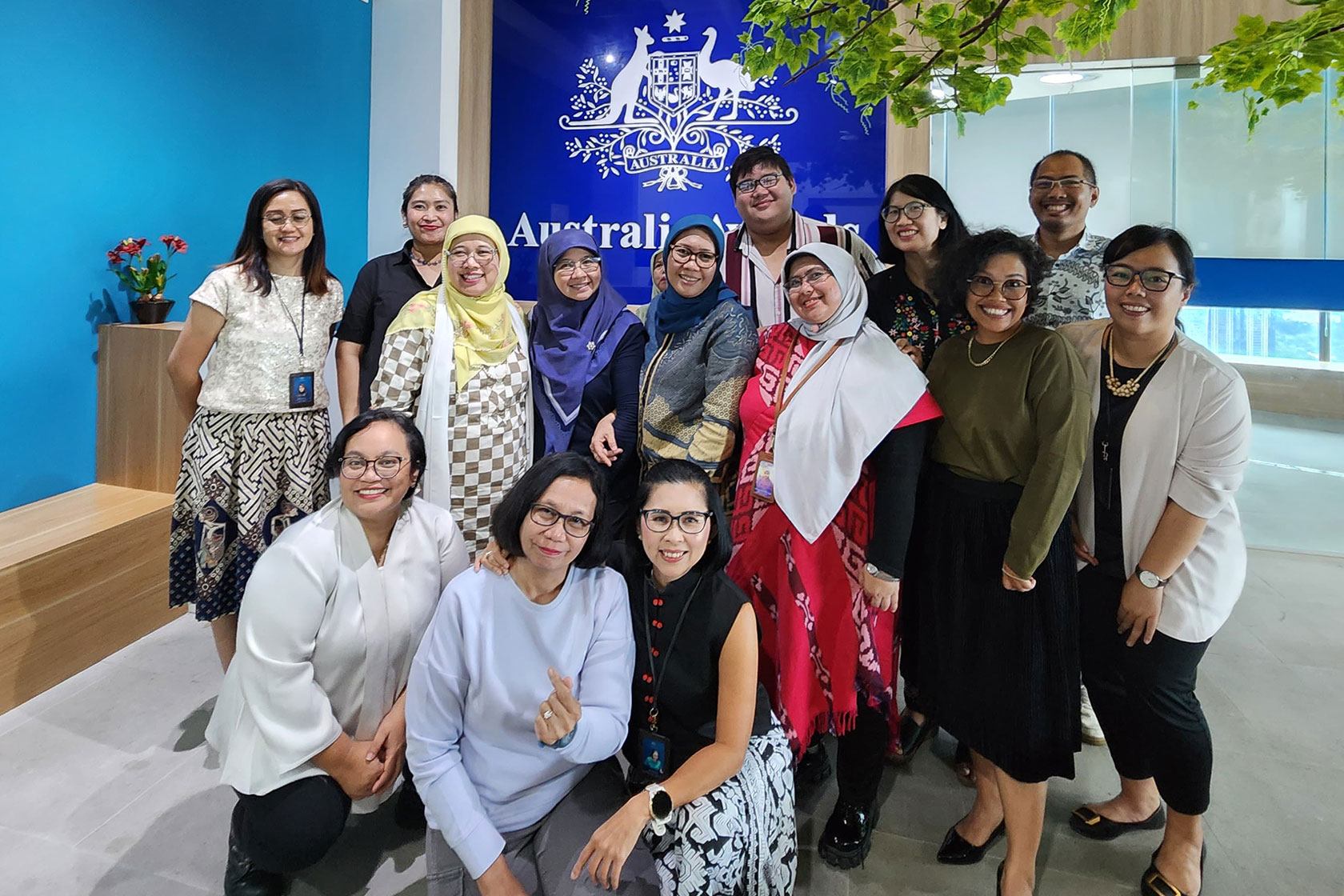
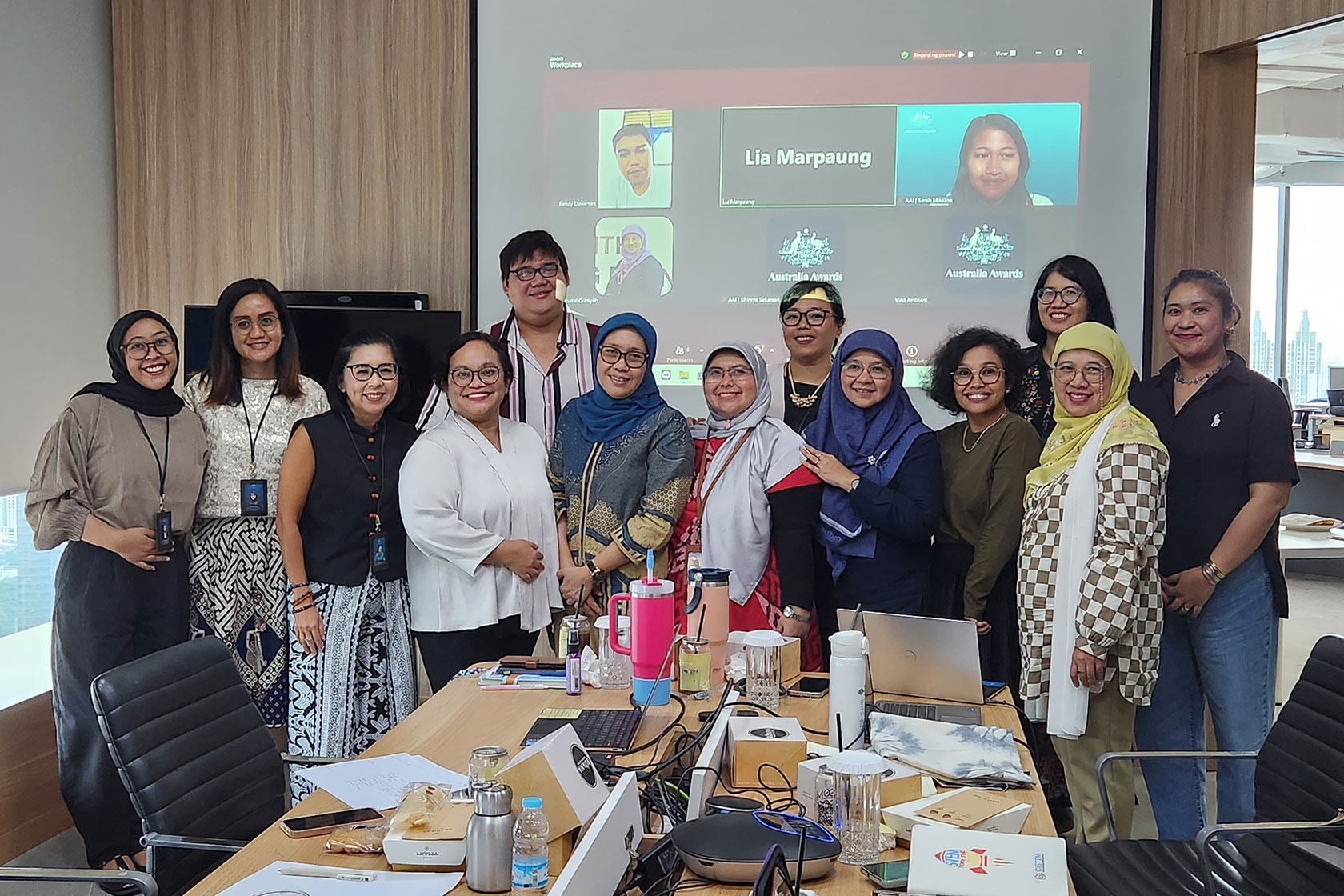
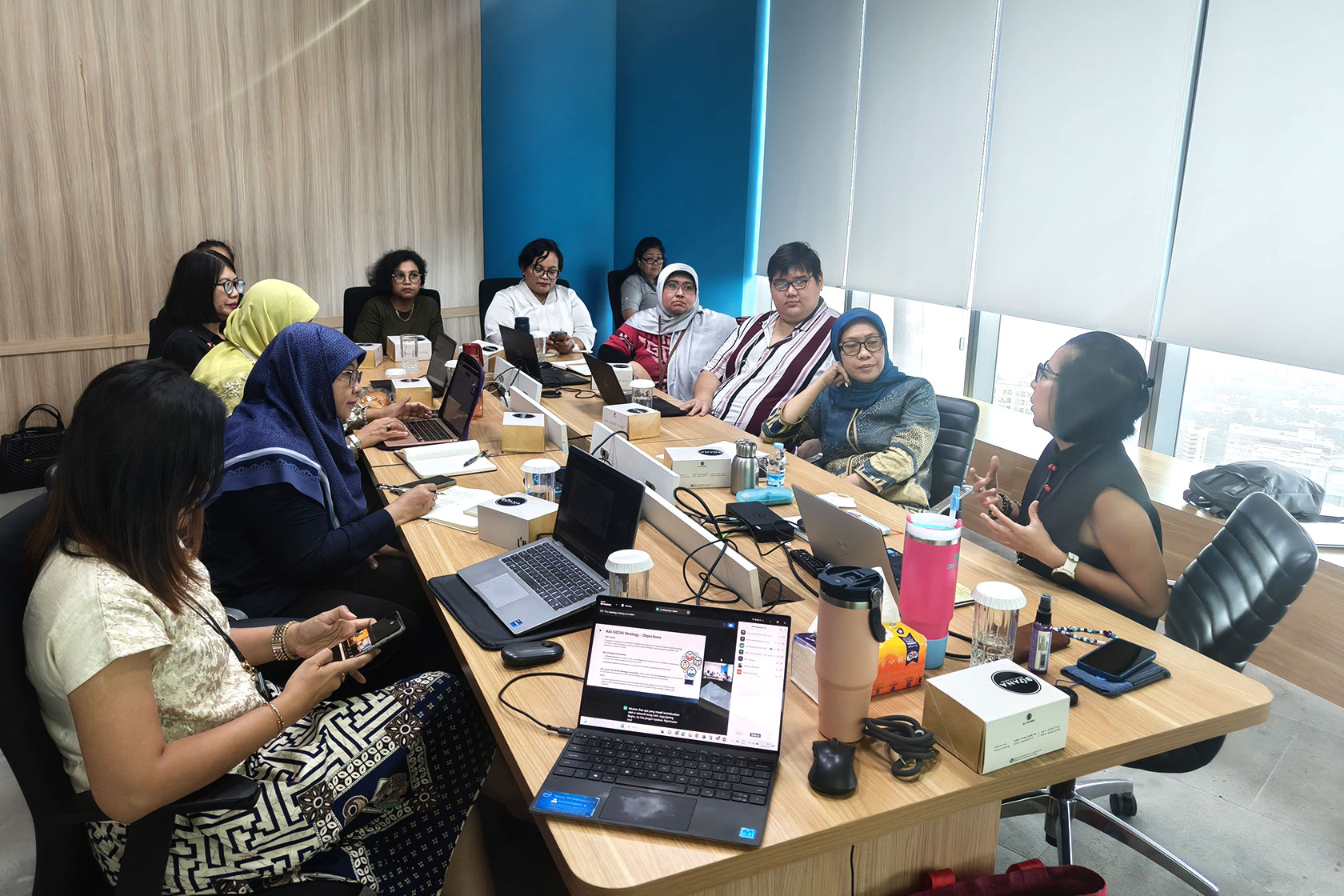
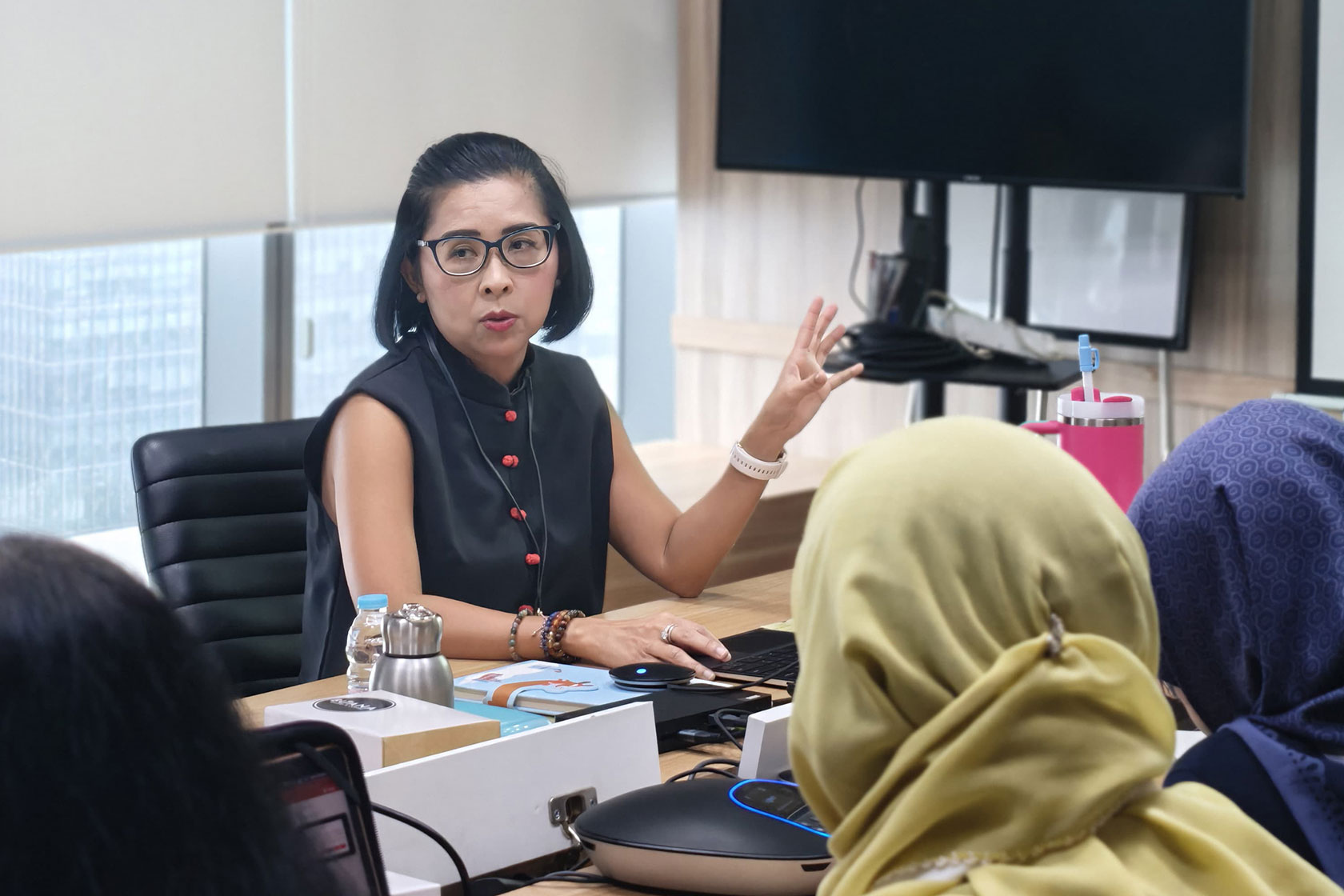
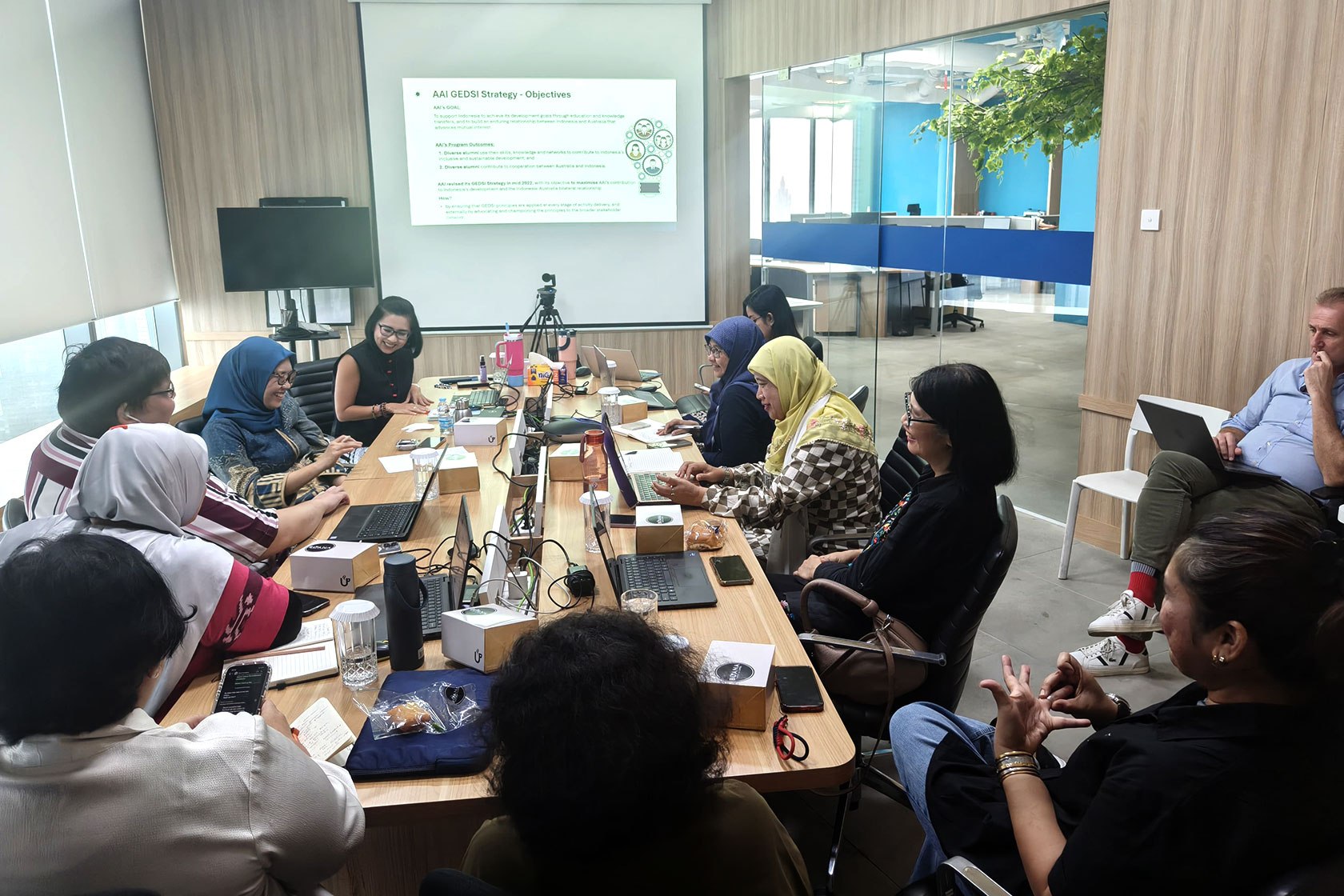


 GEDSI Alumni Network Sets Direction for Inclusion Activities in the Year Ahead
GEDSI Alumni Network Sets Direction for Inclusion Activities in the Year Ahead
